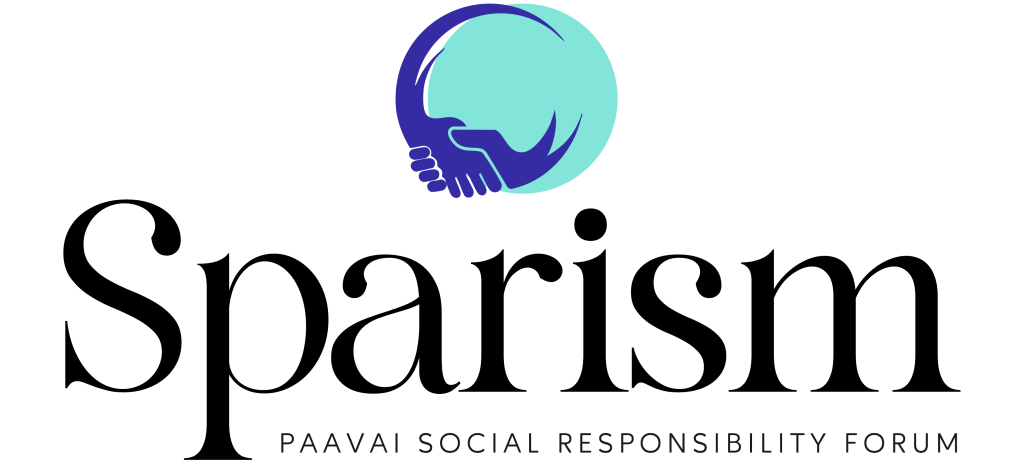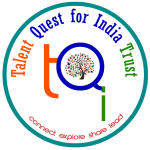Sparism
Sparism, Paavai’s social responsibility initiative, empowers students to engage in outreach programs that foster community involvement, holistic growth, and social awareness, contributing meaningfully to society’s well-being.

Paavai Social Responsibility Initiatives
Amirthavarshini, our life-sustaining rainwater harvesting pond, is a testament to Paavai’s commitment to environmental stewardship. This magnificent water body captures and stores an impressive 2 crore liters of rainwater, serving as a vital source of water sustainability for our campus. Beyond its practical purpose, it stands as a serene symbol of our harmony with nature, ensuring water security while enriching our ecosystem.
Paavai does every bit to cherish Mother Nature and the gifts that she offers. The rain water harvesting pond – Amirthavarshini, collects every drop of rain water in the campus into the 270ft x 180ft x 18ft pond, thereby replenishing the ground water.
Amirthavarshini has helped recharge the ground water in the Pachal area, thereby reducing water scarcity in the area and also reducing the salt content in the water.
Talent Quest for India (TQI)

Talent Quest for India (TQI) Trust is a team of enthusiastic youth volunteers with a vision of creating socially responsible leaders in every community. TQI has transformed from an idea of student involvement in social activities in their neighborhood to a volunteering movement in about 30 districts across Tamil Nadu, Karnataka, and Maharashtra. We have engaged over 6000+ youth leaders to deliver holistic development and social awareness programs.
Youth Red Cross (YRC)

The Red Cross is an International Organization meant for humanitarian services. It is a non-religious, non-political and non-sectarian International body. Humanity, impartiality, neutrality, independence, voluntary service, unity and universality are the seven fundamental principles of the International Red Cross Movement. Red Cross Society functions with the prominent aim of serving people who are in distress without any consideration of caste, religion, language and nationality. The Indian Red Cross Society serves as an ancillary to the State authorities engaged in social welfare activities accepting the rules and regulations of the State but at the same time maintaining its autonomy so that it can act always in accordance with the fundamental principles.